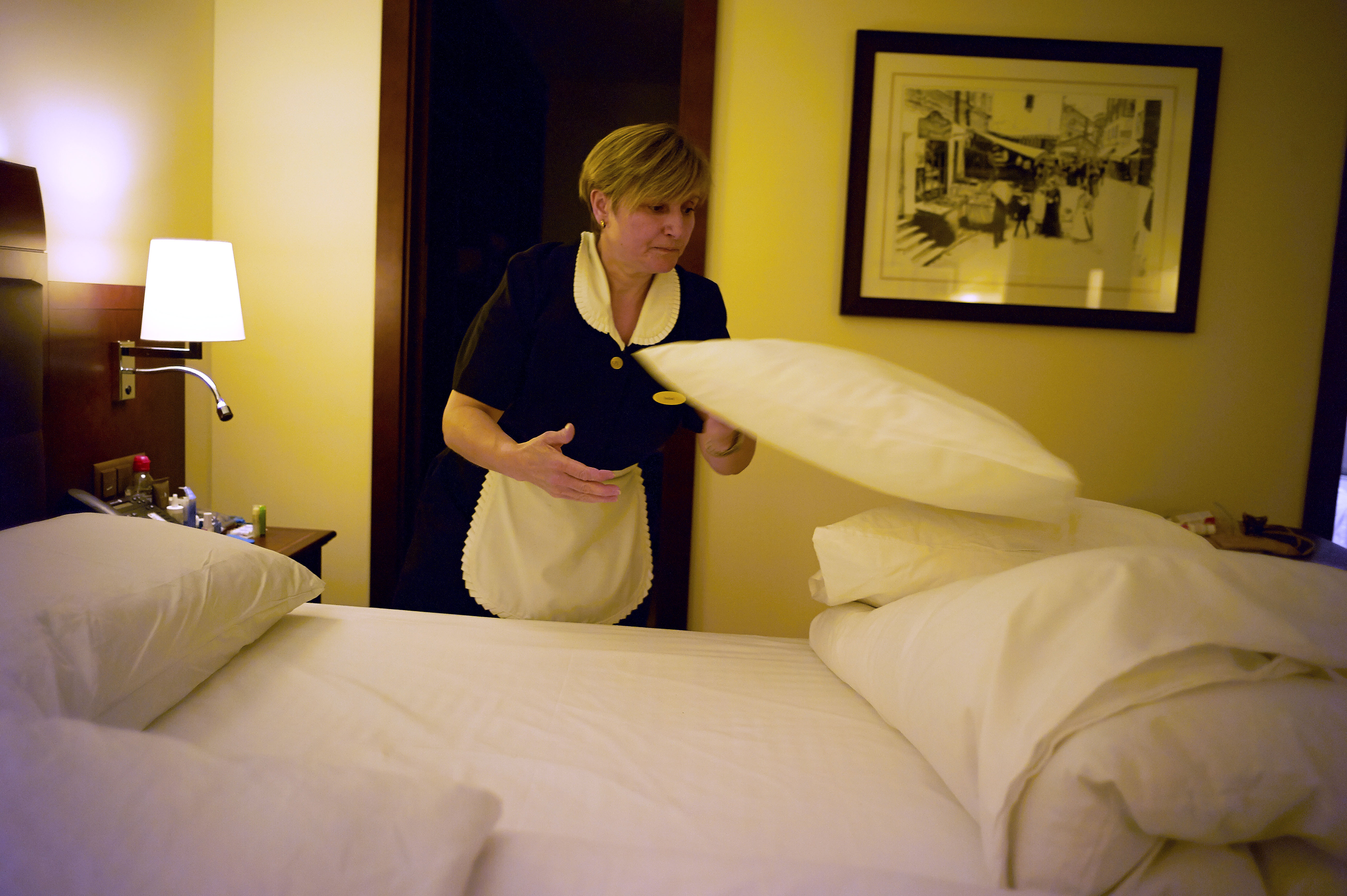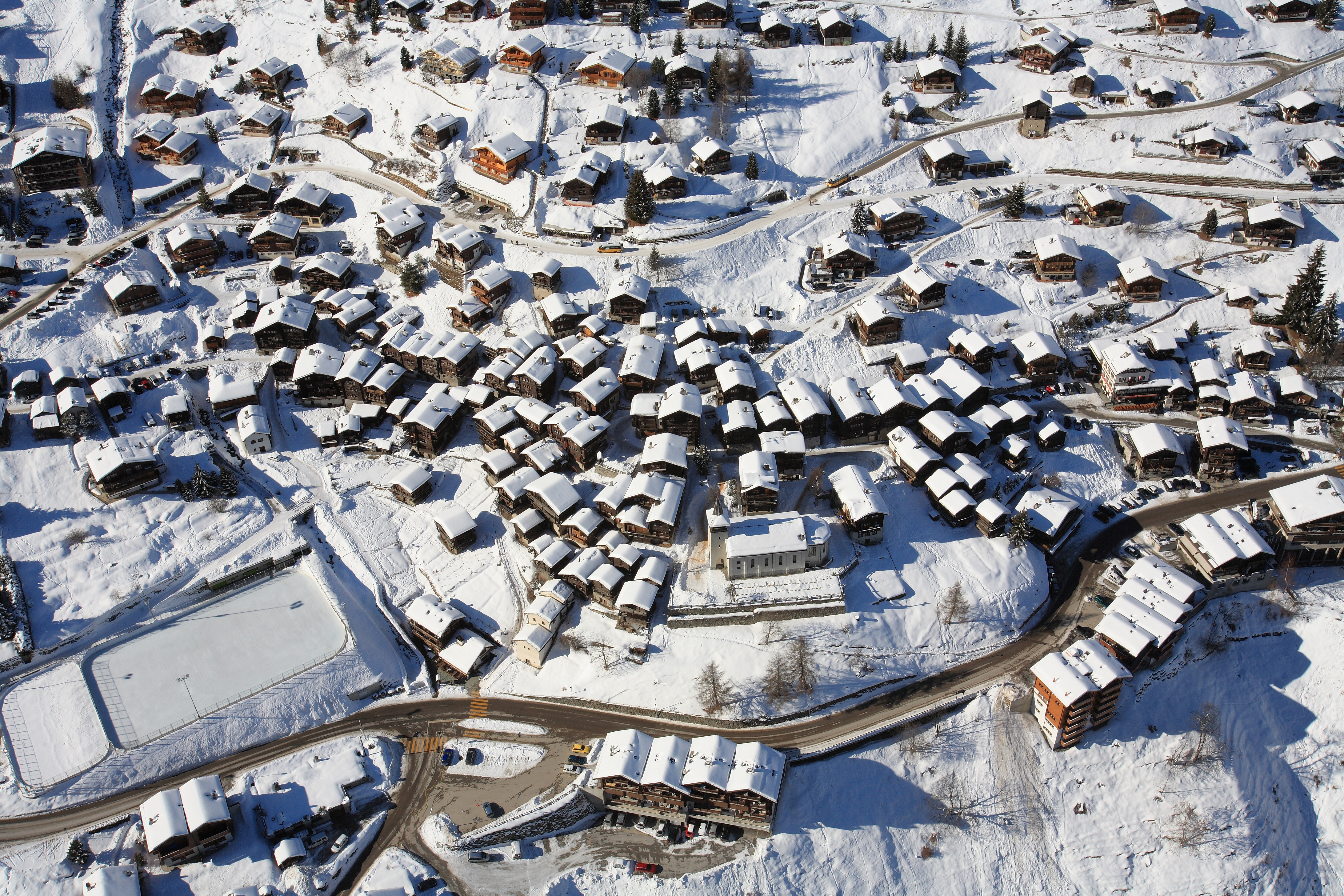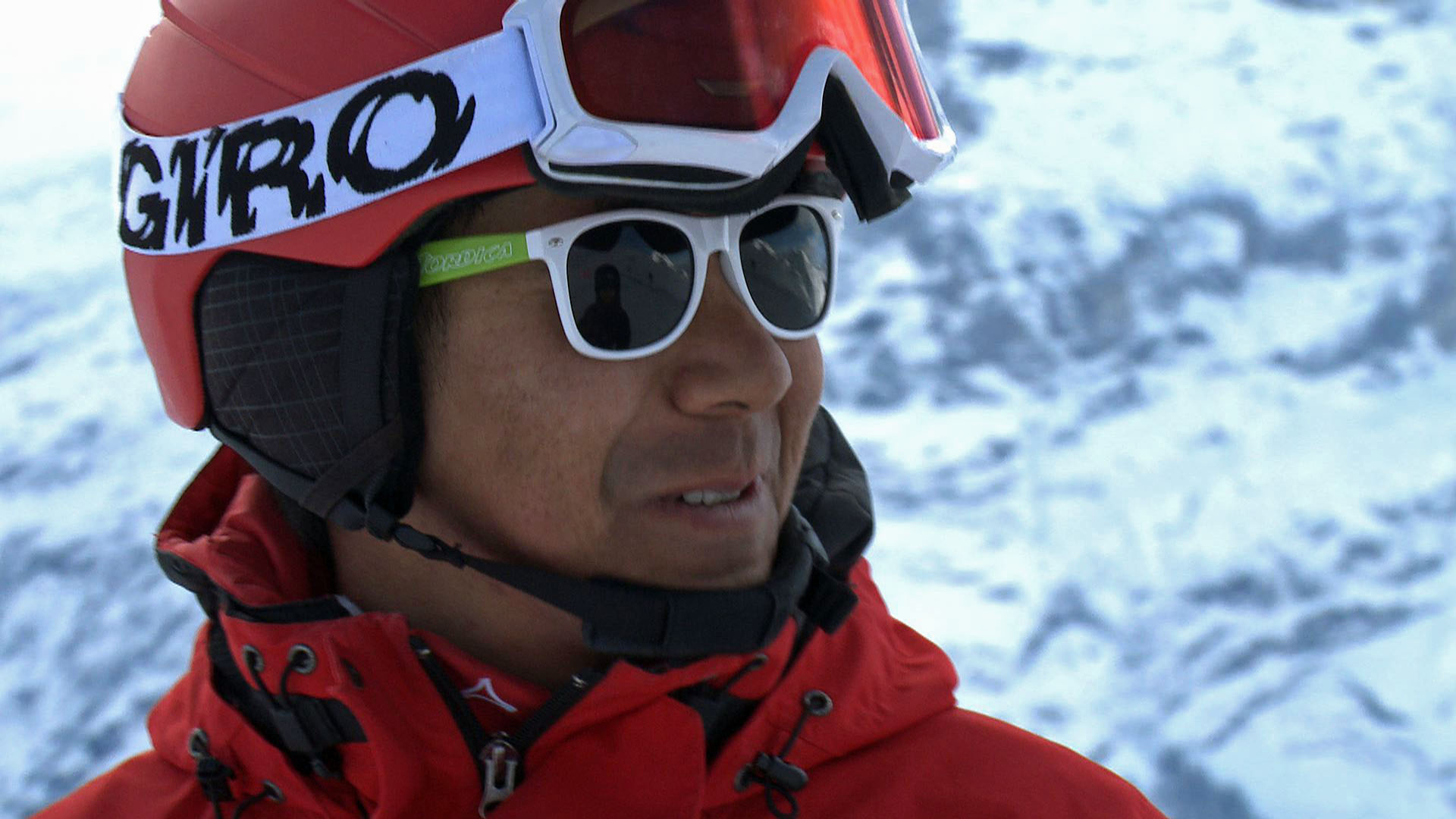Why working in tourism is no holiday for the Swiss

If you expect to meet Swiss people working in Zermatt’s hotels and restaurants, you might be surprised to be greeted by a German, a Russian or someone from any number of other countries. Why is that?
“Eighty per cent of our employees are non-Swiss,” Kevin Kunz, CEO of the Seiler Hotels group in Zermatt, tells swissinfo.ch. As he speaks, a German employee welcomes guests just inside the foyer of the five-star Mont Cervin Palace hotel and a Portuguese cleaner walks by, duster in-hand.
“We have around 40 nationalities working here. The labour market is really dictating where you can find the right people. Just out of the market in Switzerland, you wouldn’t be able to find enough to cover all the jobs.”
The large number of foreigners employed in tourism isn’t something specific to Zermatt. Across the country, ski resorts and holiday destinations are kept running by foreign labour.
Although foreigners only make up 23% of the population in Switzerland, 40.7% of workers in the hospitality sector are non-Swiss. One of these is Katja Oberndorfer, a German national who speaks five languages including English, Russian and Greek.
She’s lived and worked in Zermatt since 1996. Now Rooms Division Manager at the Mont Cervin Palace, she likes being able to use her language skills but admits there are downsides to the industry.
“In the past I worked long hours every day. It came sometimes to 10 or 12 hours a day. Even now, working part-time, I end up doing more hours, but I’ve never been someone who is always looking at their watch – this hotel is part of my life, time is not so important to me.”
Hiring EU citizens could become more difficult after quotas for foreigners, voted on in February 2014, are introduced. Oberndorfer adds, “If we only had Swiss employees we wouldn’t be able to run all of the Seiler hotels. Lots of the Swiss don’t want to work in the hotel industry…not to serve people. They want to work in a bank or in a higher position”.
In the Swiss job market where the unemployment rate is low – at 3.2% on average in 2013, where opportunities for well-paid, secure positions with regular hours are commonplace, it’s not difficult to see why a young Swiss person would opt for a career path other than tourism and hospitality.
Aside from the long hours or the split shifts when working in kitchens, the industry-specific minimum wage, for an unskilled worker is CHF3,407. For someone who has completed a full three- or four-year apprenticeship and achieved a federally recognised qualification, the minimum goes up to CHF4,108.
The figures pale in comparison to salaries in other sectors.
Tourism in training
“If you want to make real money, you don’t work in tourism. Compared to other professions the wages are definitely lower. And you work irregular hours and more of them,” admits Adrian Zaugg, who runs the department of tourism at the Feusi business school and further training centre in Bern.
After many years in the industry, Zaugg said the opportunities to travel were plentiful and the experience of meeting so many different people, irreplaceable, however, there are plenty of factors that do discourage others from following his path.
“Our students generally go on to work on reception in a hotel, in a tourism office or for an event company. But there are plenty of students who realise that tourism has a lot to do with working evenings, weekends or when other people are on vacation, so they can be turned off pretty quickly.”
These issues have contributed to a somewhat negative reputation for these jobs amongst the Swiss, something the Swiss Hotel Association, hotelleriesuisse is aware of but remains optimistic about.
“The so-called ‘war for talent’ is in full swing, and we can’t win that with money alone,” Guglielmo Brentel, president of the organisation, told swissinfo.ch.
“The competition in Switzerland for attractive jobs, and between employers, is extremely high…to find your way there is difficult. We have – thank goodness – an extremely attractive sector for young people. With us you get to work with people, you’re amongst other young people…and that means we have good weapons [at our disposal].”
High holiday costs and the strong franc have been having an impact on European visitor numbers for years, leading the tourism industry to pin its hopes on emerging markets, such as China.
Overnight stays in Swiss hotels went down 4.9% overall between 2008 and 2011 and another 2% in 2012, according to the Federal Statistical Office. 2013 did show an increase on the previous year.
Alpine regions have been particularly hard-hit, as they lack business travellers that prop up the industry in cities such as Zurich.
Unusually warm weather and a decline in the number of young skiers have also taken their toll on winter destinations. Overall, the number of ski resort visitors dropped 11.6% in February 2014 compared to the previous year, according to a report in the
SonntagsZeitung newspaper.
Cantons Graubünden and Valais suffered the worst fallout with 13% and 16% declines, respectively, and skiers in canton Bern dropped 10%.
Hospitality versus finance
Despite the brave face put on by Brentel, it’s hard to ignore the drawbacks: long, unsociable hours, low pay, and competition from well-paid positions in Switzerland’s urban centres. So why work in the industry at all?
Roger Nafzger, a young Swiss who trained in a hospital kitchen, has been working as a cook at Zermatt’s Mont Cervin Palace for the winter season.
“For my future, it’s a great reference to have, to say to a future employer that I’ve worked here. The head chef is well known too.”
“It’s certainly a different environment to working in a bank,” he adds. “Something’s always going on here. It’s fun for me to work under pressure, and I can really maximise my performance here.”
Nafzger sees this temporary job for the season as a launch pad for a career where he’ll work his way up the ladder and ultimately work abroad.
Retaining Swiss employees like Nafzger in the industry is a challenge, if the thrill of working a season amongst an international staff wears off, and concerns about wages and hours become a permanent reality.
“When these people are working, we look into whether they receive further training so that they can work their way up the hierarchy,” Guglielmo Brentel from hotelleriesuisse said.
“These are definitely measures that go towards making the industry more attractive to the Swiss. We also have to see that the image, the prestige of these jobs and the sector clearly improve, so that we stand for quality, high-level hotels that are competitive. Then young people will be ready to work and stay working in our sector.”

In compliance with the JTI standards
More: SWI swissinfo.ch certified by the Journalism Trust Initiative














You can find an overview of ongoing debates with our journalists here . Please join us!
If you want to start a conversation about a topic raised in this article or want to report factual errors, email us at english@swissinfo.ch.